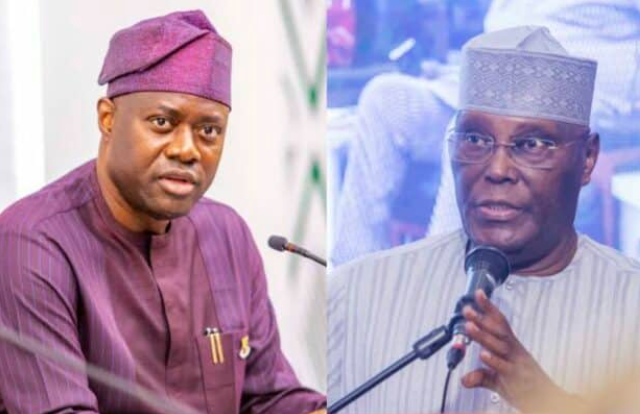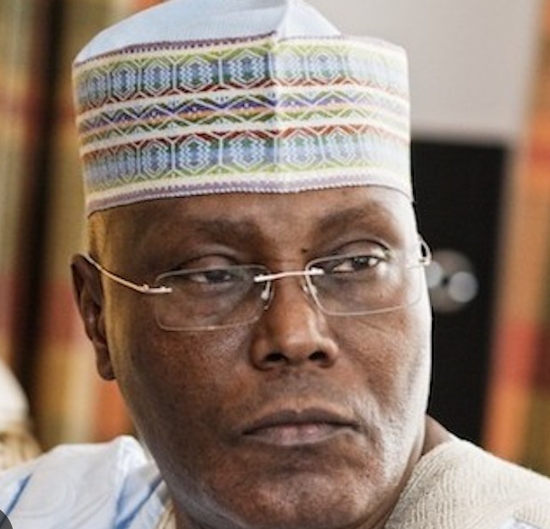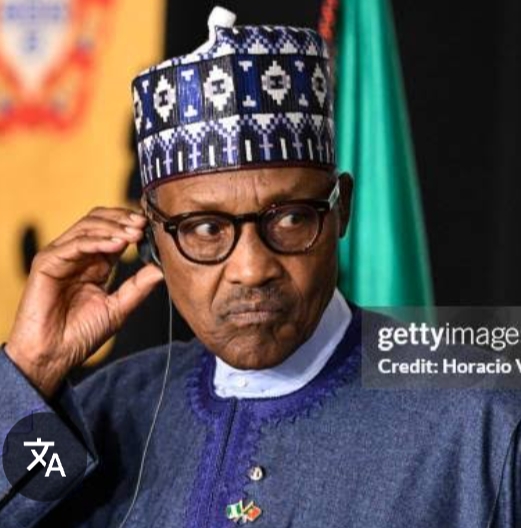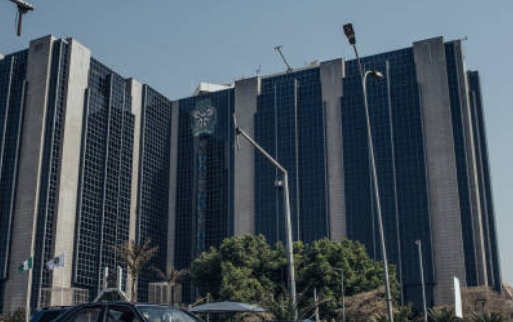News
Prominent PDP Members Dump Atiku, Embrace Seyi Makinde For 2027 Presidential Bid

Reports from within the People’s Democratic Party (PDP) suggest that key party figures are increasingly rallying behind Oyo State Governor, Seyi Makinde, as their preferred candidate for the 2027 presidential elections.
This shift in support marks a significant turn away from former Vice President Atiku Abubakar, who has long been a dominant figure in the party and a serial contender for the presidency. The growing endorsement for Makinde comes at a critical time for the PDP, as it attempts to reposition itself and unify its ranks after a period of internal strife.
In recent weeks, PDP governors have played a pivotal role in mediating peace among various factions within the party. Their efforts have been aimed at resolving longstanding disputes and mending fractures that threatened to destabilize the PDP. This internal reconciliation has set the stage for discussions on the future of the party’s leadership, particularly with an eye on the 2027 elections.
According to sources close to the PDP’s National Working Committee (NWC), there has been a notable rise in support for Makinde’s candidacy, especially from individuals aligned with Nyesom Wike, the Minister of the Federal Capital Territory.
Wike, who has been a key power broker within the PDP, is believed to be playing a significant role in shaping the party’s direction, and his backing of Makinde signals a broader strategy to shift away from Atiku’s influence. Makinde, who is seen as a rising star within the party, has garnered praise for his governance in Oyo State, as well as his ability to build alliances and appeal to a broader base of voters, making him an appealing candidate for the party’s future leadership.
This emerging preference for Makinde is being viewed by some as a tactical move to sideline Atiku, who, despite his extensive political experience and stature, has faced increasing criticism within party circles. Many party members have expressed frustration with Atiku’s repeated bids for the presidency, with some labeling him a “serial contestant” who has failed to deliver electoral victories for the PDP in past elections. These critics argue that the party needs a fresh face with new ideas to rejuvenate its appeal to voters, particularly after losing ground in the 2023 elections.
Moreover, the shift in support towards Makinde also reflects a broader generational shift within the PDP, as younger and more dynamic leaders like him emerge as the future of the party. His relatively progressive policies, successful governance in Oyo State, and ability to unite different factions have positioned him as a strong contender for the PDP’s presidential ticket in 2027.
As the PDP gears up for the next election cycle, the internal dynamics of the party will likely continue to evolve. While Atiku remains a formidable figure with a loyal base of supporters, the growing consensus around Makinde’s candidacy signals a desire within the party for renewal and change. This battle for the party’s nomination is expected to intensify in the coming years, as both camps work to consolidate their influence and secure the support of key stakeholders within the PDP.
For now, the growing endorsement of Seyi Makinde represents a significant shift in the PDP’s internal politics, as the party looks to rebuild and strengthen its chances in the 2027 presidential elections. Whether this shift will lead to a formal nomination remains to be seen, but it is clear that the winds of change are blowing within the PDP, and Makinde is positioning himself as a frontrunner for the party’s future leadership.
News
Kill your 2027 election, PDP, LP chieftains advise Atiku

By Kayode Sanni-Arewa
A member of the National Executive Committee of the Peoples Democratic Party, Diran Odeyemi, and a chieftain of the Labour Party, Anslem Eragbe, have advised former Vice President Atiku Abubakar to kill his 2027 presidential election ambition.
Both Odeyemi and Eragbe said the South should be allowed to rule for eight years.
They said the 2027 southern president might not necessarily be President Bola Tinubu.
Eragbe, in an interview with Sunday PUNCH, argued that Atiku should not have contested the 2023 presidential election because it was the turn of the South to produce a president.
He said, “Atiku was not supposed to contest the 2023 presidential election because it was the turn of southern Nigeria. It is the turn of the South till 2031.
“Being a former Vice President of Nigeria for eight years; Atiku knows Nigeria’s power drill and equation. He should support younger Nigerians to power and provide guidance in 2027.”
Asked if the former Vice President would breach any law if he chooses to run for the nation’s highest office in 2027, Eragbe said the PDP stalwart “is entitled to his ambition and aspirations, adding however that “2027 – 2031 is for southern Nigeria.”
According to him, the 2027 presidency shall remain in southern Nigeria and should be zoned to the South-South region.
“It should be further micro-zoned to the (defunct) mid-Western region. I mean the defunct Bendel, now Edo and Delta states. We expect the major political parties to do this for equity, justice, fairness and parity.
“However, should President Bola Tinubu, win the 2027 presidential election and continue till 2031, power shall return to Northern Nigeria,” he added.
The former President of the Student Union Government of Ahmadu Bello University, Zaria, added that when compared with other geo-political zones in the country, the South-South had spent the least number of years on the presidential seat.
“The region that has ruled the least in Nigeria is the South-South with only five years under Goodluck Jonathan and should rule Nigeria again beginning from 2027.
“When put together, the North-Central spent a total of 17 years and 11 months, North-West, 17 years, three months; North-East, 10 years, three months; South-West, 15 years, four months by the time Tinubu finishes his term in May 2027; South East spent five years and nine months and the South-South, the only region to spend five years only on the presidential seat,” he added.
Eragbe called on the political parties to identify credible politicians, regardless of their financial status, to fly their flags for the various elective offices, stressing that 2027 would be another opportunity to right the wrongs of the past.
Speaking with Sunday PUNCH, Odeyemi stated that the ex-vice president’s participation in the 2023 presidential election and his perceived ambitions for 2027 were the causes of PDP crisis.
He charged Atiku to bury his ambition, adding that once the former vice president failed to declare interest in 2027, the crisis in the party would be over.
The 2023 election was originally supposed to be between southerners, as former President Muhammadu Buhari, a northerner, had just completed eight years in office. However, Atiku insisted on exercising his rights, which is why there is a crisis in the PDP,” he stated.
News
Why Buhari govt was shoved aside – IBB

By Kayode Sanni-Arewa
Ex-military head of state, Ibrahim Badamasi Babangida (IBB), has stated that he shoved aside Muhammadu Buhari’s regime because he believed his policies were detrimental to the nation’s progress.
The former military leader disclosed this in his autobiography, ‘A Journey In Service’, launched in Abuja on Thursday.
Babangida was chief of staff to Buhari, who ousted Shehu Shagari’s civilian government in the December 31, 1983 coup.
After the military coup that replaced the civilian government of Shehu Shagari with a military regime led by Major General Muhammadu Buhari, Ibrahim Babangida assumed the Chief of Army Staff role.
However, he became increasingly dissatisfied with the Buhari government’s policies and leadership style, which he described as draconian.
Recalling how he journeyed from Minna to Lagos on August 27, 1985, to assume office, Babangida said tension had already begun to build up since the start of the year, and a change in leadership had become necessary.
He said, “On that day, it became my lot to step into the saddle of national leadership on behalf of the Nigerian armed forces. The change in leadership had become necessary as a response to the worsening mood of the nation and growing concern about our future as a people. All through the previous day, as we flew from Minna and drove through Lagos towards Bonny Camp, I was deeply reflecting on how we as a nation got to this point and how and why I found myself at this juncture of fate.
“By the beginning of 1985, the citizenry had become apprehensive about the future of our country.
The atmosphere was precarious and fraught with ominous signs of clear and present danger. It was clear to the more discerning leadership of the armed forces that our initial rescue mission of 1983 had largely miscarried. We now stood the risk of having the armed forces split down the line because our rescue mission had largely derailed. If the armed forces imploded, the nation would go with it, and the end was just too frightening to contemplate.
“Divisions of opinion within the armed forces had come to replace the unanimity of purpose that informed the December 1983 change of government. In state affairs, the armed forces, as the only remaining institution of national cohesion, were becoming torn into factions; something needed to be done lest we lose the nation itself. My greatest fear was that division of opinion and views within the armed forces could lead to factionalisation in the military. If allowed to continue and gain root, grave dangers lay ahead.”
News
How CBN Spent $8bn On Naira Defence Against Dollar At FX Market

By Kayode Sanni-Arewa
The Chief Executive Officer of Financial Derivatives, Bismark Rewane, has revealed that the Nigerian government, through the Central Bank of Nigeria, has spent almost $8 billion defending the naira at the foreign exchange market in the last months.
Rewane, a renowned economist, disclosed this at the weekend in an interview with Channels Television.
He was reacting to the decision by the Monetary Policy Committee to retain the country’s interest rate at 27.50 percent at the same time, maintaining other MPR parameters.
Explaining the reason the Naira has appreciated to N1,505 and N1,507 across parallel and official foreign exchange markets, he noted that the apex bank has several initiatives to support the country’s currency.
“We’ve also borrowed $4 billion in bond issues. When you take a look at that, you’ll see there is a lot of work. We’ve actually spent almost $8 billion trying to support the naira at current levels,” Rewane stated.
According to him, Nigeria’s January inflation figure, which dropped to 24.48 percent after the Consumer Price Index rebasing, does not reflect the reality of ordinary Nigerians.
“There’s no way that inflation can reduce by 10% in a short period. The man on the street does not believe that inflation has come down as sharply as that,” he said.
-

 News18 hours ago
News18 hours agoJust in : Senator Gumau is dead
-

 News19 hours ago
News19 hours ago10th NASS Committed to Constitutional Reforms – Kalu
-

 News19 hours ago
News19 hours agoRep Salam Congratulates Governor Adeleke On Successful Conduct Of LG Elections
-

 News18 hours ago
News18 hours agoI have never insulted President Tinubu in my entire life”-Gov Adeleke
-

 News18 hours ago
News18 hours agoPolice seal OSSIEC office, officials nabbed, says chairman
-

 Metro11 hours ago
Metro11 hours agoInsecurity! Gunmen invade church, slash pastor’s 2 fingers
-

 Metro11 hours ago
Metro11 hours agoFire engulfs MTN office in Oyo
-

 Politics17 hours ago
Politics17 hours agoWike excited as Orbih is re-elected PDP S/South Chairman







